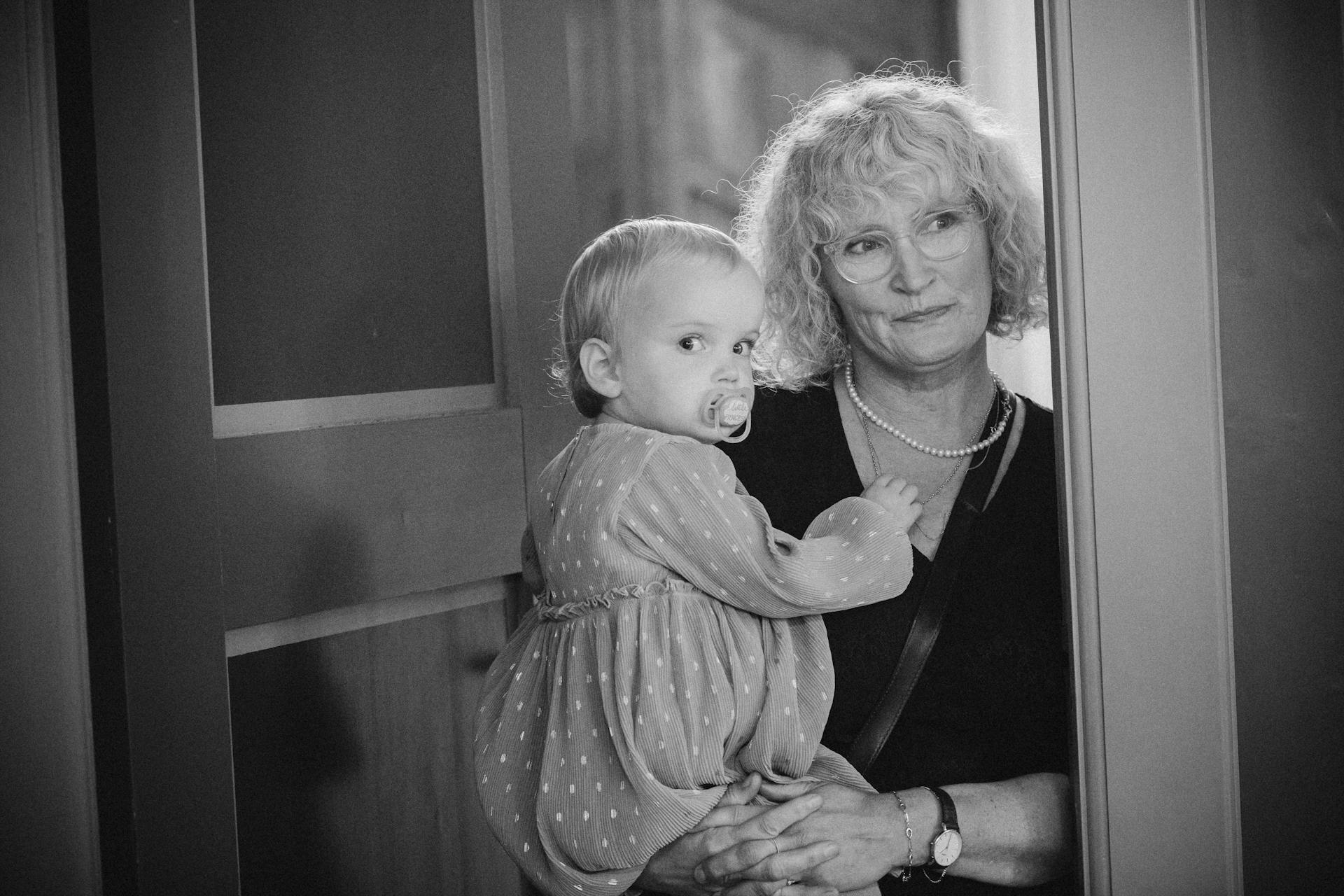
In a world where "pro choice" is often seen as anathema to religious beliefs, it can be difficult to reconcile the two. But what happens when you wear white to your hypothetical wedding and realized that your id spent the pre-teen years in a Catholic school, where avoiding communion and confession was practically a daily routine? Or when your mom's credit card statement shows daily doses of Plan B, but she didn't laugh when you asked if she needed some help with the back story?
For many people of faith who hold pro-choice views, navigating the murky waters of religion and reproductive rights can be challenging. The seemingly secular worldview of government continues to dismantle access to abortion services, while propriety im struck by religious decorum would have us believe that we must adhere to strict religious ideals that undermine access and shame people for seeking this medical procedure. However, as religious scholars have noted, there is beauty in connecting pro-choice beliefs with deeply held religious beliefs.
This article sets out to explore how people across different religions view abortion and how their pro-choice views align or conflict with their religious ideals. Through interviews with a diverse group of individuals from Chicagos nationally representative 2018 General Social Survey, we delve into what it means to be both religious and pro-choice in a pretty religious country where seventy-eight percent of people identify as slightly or very religious. It's pretty obvious that there is a large swath of religious people who hold pro-choice views; we hope this article will provide insight into why they do so.
Gaining a Better Understanding of the Pro-Life Viewpoint
Pro-life believes that human life is sacred and should be protected from conception until natural death. They argue that every human being deserves respect and dignity, regardless of their intent viability or quality-of-life concerns. This comprehensive pro-life ethic extends to issues such as assisted suicide and the death penalty, where pro-life ethic conflicts with personal autonomy.
The Roman Catholic Church prohibits abortion in all circumstances, while many other pro-life advocates consider it immoral except in cases where the mother's life is at risk. Similarly, assisted suicide and euthanasia are considered morally wrong because they go against the value of preserving human life. However, this pro-life ethic conflicts with personal autonomy, which allows individuals to make decisions about their own bodies.
While pro-life views are often considered conservative, they also have implications for government policy beyond just abortion. For example, some pro-lifers believe that the death penalty is immoral because it goes against the principle of protecting human life. Gaining a better understanding of these viewpoints can help us engage in more productive conversations about issues related to human life and government policy.
Unlocking the Secrets of the World: What Can Science Reveal?

Science has long been a tool for us to ascertain concepts and facts about our world, including the scientific basis for human life. The sanctity of science is particularly important when discussing controversial topics like "pro-choice", as it allows us to separate emotional reasons from scientific definition. Brain scientists have discovered that neocortical development makes emotion possible, meaning that emotional responses are not always rational or logical.
However, science can also reveal deeper truths about the world around us. In understanding how the brain processes information and how we respond emotionally, we can begin to understand how certain decisions may impact our lives and society as a whole. By looking at data and research with an open mind, we can make more informed choices about our future. As such, unlocking the secrets of the world through science is both an exciting and necessary undertaking for all who seek knowledge and progress.
Understanding the Causes and Effects of Conflicts
Pro-choice movements primarily advocate for a woman's right to choose whether or not to have an abortion. On the other hand, the pro-life movement argues that every fetus has a right to life, and that abortion is equivalent to taking an innocent person's life. The conflict arises because both sides believe that they are fighting for something important.
One of the main causes of conflict in the abortion debate is the question of when life begins. The pro-life movement argues that life begins at conception, and that every fetus is a nonviable undeveloped human life. The pro-choice movement argues that until a fetus can survive outside of its mother's womb, it should not be considered an individual with rights. Additionally, government abortion laws can also be a source of conflict, as some people argue that they are unconstitutional or illegal based on individual rights. In some cases, pro-choice movements overlap with other social justice issues such as healthcare access and gender equality.
Why Being True to Yourself is Not Up for Debate
The pro-choice debate is a contentious issue that has divided many people in the United States. However, being true to yourself should never be up for debate. Circumstances put women in difficult situations where they have to make tough decisions about their bodies and their lives. According to a study conducted by the Guttmacher Institute, 73 percent of women who have abortions do so because they cannot afford to raise a child. Denying women access to safe and legal abortions is not only a self-destructive option but also goes against their basic human rights. The vast majority of women who choose abortion do so because it's the best decision for them at that moment in their life.
The Importance of Religion in Respecting Life
The abortion debate is a heated topic, with strong opinions on both sides. However, the religious nature of respecting life cannot be ignored. Many religions believe in the concept of an immortal soul, which exists from the moment of conception. Even if it is just a week-old pregnancy, that potential life has value and deserves respect. The anti-abortion movement recognizes this difference and argues that every fetus has the potential to become a fully-formed human, a living breathing person. It is important to remember that religion plays an essential role in shaping our beliefs about respecting life.
What's Ahead for Abortion?
As we move into the future, it is likely that effective forms of birth control will grow increasingly rare. However, individuals will still face unplanned pregnancies someday, and abortion will remain an option for those who need it. Late 20th century today contraceptive options have given people more ways to prevent pregnancy than ever before, including emergency contraception. Despite these advances in birth control, many women still end up pregnant when they don't want to be.
Abortion remains a controversial issue in the United States, with some people believing that it should be illegal while others believe that every individual should have the right to choose what happens to their own body. The reality is that unplanned pregnancies can happen to individuals from all socioeconomic backgrounds, and reliable forms of birth control are not always available or accessible. As we look ahead, it is important to continue advocating for reproductive rights and access to safe abortion services for those who need them.
Religious Pluralism and the Obligation of Government
Religious pluralism presents a complex challenge for governments. While it is important to respect the specific theological definitions and beliefs of various religions, the obligation of government is to protect human life. Theological traditions teach that the fetus begins to possess an immortal soul at conception, while others believe that it may not occur until later in development. Regardless, theological traditions teach that human life is sacred and should be protected. However, this does not mean that any one particular religion's definition of when life begins or possession of an immortal soul should be imposed on all individuals. It is up to the individual to navigate their own beliefs and make decisions about their own body without government interference in regards to religious doctrine on whether or not there is an immortal soul whatsoever.
Frequently Asked Questions
What is the difference between pro-life and right to life?
Pro-life typically focuses on opposition to abortion, while right to life encompasses broader issues such as euthanasia and assisted suicide.
Is the pro-choice movement pro-abortion?
No, the pro-choice movement supports a woman's right to choose what happens with her own body, including the option of having an abortion if she chooses to. It is not necessarily pro-abortion, but rather pro-access to safe and legal reproductive healthcare options.
What influence does religion have on Americans' views on abortions?
Religion plays a significant role in shaping Americans' views on abortions, with those who identify as conservative Christians being more likely to oppose it and those who are not religious or identify as liberal Christians being more likely to support it.
What does it mean to be “pro-life”?
Being "pro-life" means that you believe in protecting the sanctity of human life, particularly when it comes to issues such as abortion and euthanasia. It is often associated with religious or moral beliefs that view all life as valuable and deserving of protection.
Is the religious right trying to create a Christian theocracy?
There is no conclusive evidence that the religious right is actively trying to create a Christian theocracy in the United States, but some individuals and organizations within this movement have expressed support for policies that align with Christian values.
Featured Images: pexels.com


